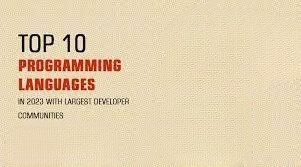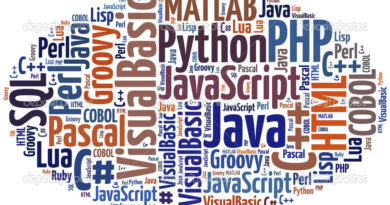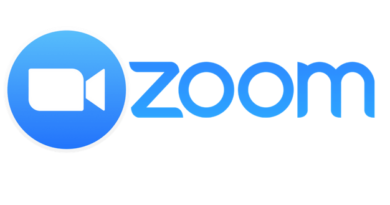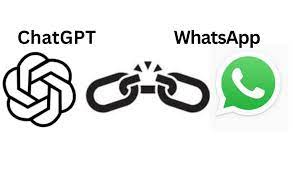Top 10 Past Popular Programming Languages That Will Resurge in 2023
Nowadays, businesses rely on programming languages without hesitation since they are aware of how much simpler it has become for them to accomplish their objectives. When it comes to programming, cloud programming languages are starting to become extremely popular. The question of which of them is truly worth it all must always be fairly understood. We have, however, made it simpler for you. This article will discuss the top 10 previously favoured programming languages that will be in demand in 2023.
Python
As a server-side language that supports a wide variety of applications, Python has grown significantly in popularity. This cloud programming language can handle anything from basic scripting to complex web applications. Python enables programmers to use a number of programming paradigms, such as functional, reflective, etc. In addition to all of this, Python is regarded as one of the most approachable and useful programming languages.
JavaScript
There is no better programming language to rely on for businesses with the goal of developing dynamic online features like animated graphics, interactive maps, etc. than JavaScript. This programming language has numerous uses in the creation of websites, web servers, video games, etc.
Golang (Go)
Go is a cloud programming language created by Google, as is common knowledge. Its expanding popularity is directly related to its capacity to manage multicore, networked systems, and large codebases. Due to this, major corporations like Google, Uber, Twitch, Dropbox, etc. now rely on for their APIs and web apps.
C#
One of the key factors in Csuccess #’s has been its capacity to accommodate the ideas of object-oriented programming. No surprise that C# is listed among the top 10 formerly popular programming languages that will be on the rise once more in 2023 given that it is regarded as being suitable for Windows, Android, and iOS applications.
Java
Java doesn’t require particular mention when discussing big data, web development, or application development. The Oracle Corporation owns this general-purpose programming language, which has an object-oriented architecture. Although this is a somewhat difficult programming language to master, the number of organisations that use it says a lot about how dependable it is.
R
R is one of the greatest programming languages to learn since it is used for processing statistics, including linear and nonlinear modelling, calculation, testing, visualisation, and analysis. Anyone who has a solid grasp of mathematics can work with R without experiencing any difficulty. This programming language is open-source and compatible with the Linux, Windows, and Mac operating systems.
C++
Data abstraction, polymorphism, inheritance, and other characteristics are only a few of the many features that the cross-platform programming language C++ has to offer. The creation of desktop applications, GUI applications, 3D games, and real-time mathematical solutions all make extensive use of C++. The fact that this programming language’s code compilation time is far faster than Python and Java is yet another impressive aspect.
Swift
Swift is a fairly new programming language. It does, however, rank among the top 10 previously popular programming languages that are expected to grow in popularity in 2023. This programming language is simple enough that even total beginners may grasp it. Swift is renowned for its performance, security, and quickness.
Kotlin
Another highly sought-after language for 2023 is Kotlin, an open-source programming language that can help you get better jobs. Because of features like support for lambda functions, smart casts, null safety, and operator overloading, businesses like Netflix, Pinterest, and Amazon Web Services adopt this language.
Ruby
Ruby has developed to be incredibly well-liked among web developers. The syntax of this programming language is praised for being simple to read and write. Its object-oriented architecture also allows procedural and functional programming syntax, which is worth mentioning.



